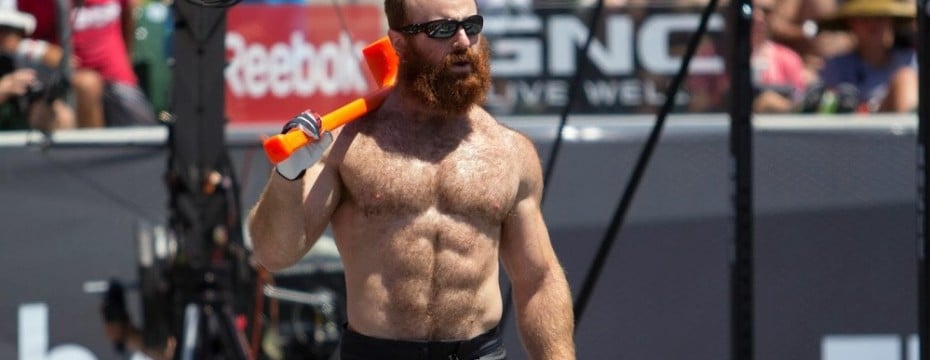The Unbiased Experiment: What Brought My Girls Program Success
The title of strength and conditioning coach is unlike any other. Whether you are 6’4’’ and 270 pounds, or 5’8’’ and 170 pounds, athletes often keep their distance from the strength coach during the first stages of the relationship. They know the purpose of the strength coach is to increase the players value through physical work. As time goes on, the strength coach evolves from a necessary evil to a strategic relationship. Eventually, athletes lean on and confide in the strength coach, because they understand the value of having someone in their corner who wants the best for them and also expects the best of them.
I have coached strength and conditioning for over a decade, and much of that time has been spent with a local high school rugby program. This past season I ran an experiment and I could not help but share the success with the strength community. To premise the experiment, our school’s Boys Rugby program is extremely successful; they hold one of the most impressive records in the nation at 115-2-3 and have won eight consecutive state championship titles. However, the Girls program has had less success; never having an undefeated season and winning their last state title in 2012.
This year we decided to identify the gap between the two programs.
The head coach of the girls was also the assistant coach of the boys. All of the sport coaching was the same: girls did the same drills as the boys, the same message was delivered. What was missing? The coach finally decided to bring me in for a much-needed conditioning component. In the strength world we know men and women aren’t much different. Men may traditionally have a higher level of speed and strength, but as far as grit and athleticism, girls can handle what the boys do. So, this past season I decided to coach the girls like I coach the boys.
To me, my male rugby players’ mentality resembles that of adults rather than teenagers, and I expect them to keep up to the demands of the sport no matter how challenging. We practice in a vacuum with no interference from the school, parents, friends, or other unnecessary voices. The guys team is a secret operation of pain and accomplishment. I picked up the conditioning program I wrote for the guys and dropped it right on the girls’ heads.
Day one I asked, “What is your goal?”
“Win state!” They cheered.
“Are you sure? Because if that’s your goal, then that’s my goal, and I’m not holding anything back.”
They responded with “Check."
This season I used words like “winner,” “awesome,” “fastest,” “first,” and “best.” But I also said taboo words like “loser,” “horrible,” “slowest,” “last,” “worst.” The words our society at-large shields these kids from. You can’t say “loser” to a teenage athlete! Are you crazy?
Well, I did. If a girl lost a conditioning race, she was the loser. It doesn’t mean she is a loser as a human being. It means she lost the event.
I pushed the envelope so far, I couldn’t believe I never got a text or call from a parent. For the first two weeks we had girls crying, puking, cussing, and hyperventilating. If they were performing poorly or giving poor effort, I called them out on it. If they were blaming teammates for their loss, I made them run to prove they were better. I conditioned the life out of these kids. But every day I showed up there were twenty girls waiting to be worked.
As I stated before, the relationship between athlete and strength coach eventually evolves. Eventually kids buy-in, and when that happens there is a noticeable difference in all aspects of the athletes. A month in they were pissed if they lost to a teammate. A month in they were asking to do extra shuttles. A month in they were asking questions I couldn’t answer. A month in, a group of teenage girls were monsters, laying perfect-form tackles on girls who outweighed them by a hundred pounds.
At 5:20PM on October 27th, the Southeast Polk Rugby girls finished their first-ever undefeated season, and took home the state trophy. They achieved their goal.
I believe conditioning is becoming a lost concept because there is no such thing as competition in practice any longer. Any scenario which creates a winner and a loser - apart from formal competition - is too often discouraged. If our young athletes are told they lose, some people will assume their feelings will be hurt and they will never recover. I believe down to my core this notion is absolutely false.
Removing competition and adversity from a child’s life is like removing the flame from a pot of stew. A pot may have fifteen ingredients thrown into it like potatoes, steak, carrots, spices, seasoning, and broth, but it’s the flame which turns it into stew. When the heat is turned up the ingredients change. They compete with each other. Some flavors diminish. Other flavors intensify. Textures change. Fifteen ingredients eventually mesh and become a meal. Don’t believe me? The next time you make soup, set aside a bowl before you turn on the heat. Hours later, take a bowl of the finish product and compare. I think you know which one wins.
My advice to coaches is to crank up the heat... work the kids. Boil out the bad attitudes. Allow the quality people to rise to the top. Some kids will soften and fall to secondary positions. Some will harden and move to the front. The best part of this process is watching self-awareness build. After a month of conditioning a kid will know whether he or she is a piece of steak or a potato. And when they recognize that on their own, the coach is no longer the bad guy.
Coaches will often state the current generation of kids is soft, but I completely disagree. In my opinion, the coaches who say that are soft. Coaches should be able to see their young athletes cry, struggle and resist challenges. Removing barriers and rushing to fight our athletes’ personal battles will only inhibit their growth and perspective. Kids are simply a batch of ingredients. You control the time, temperature, and testing of the final product.
Do not go weak on your players. Let your kids struggle. Give them permission to work. Encourage outsiders to test them. If you do, guess what happens? This.
Subscribe to our blog
Subscribe to receive the latest blog posts to your inbox every week.
Related posts

How to Not Be a "Soft" Athlete - Part I

How to Deal with a Difficult Sport Coach


